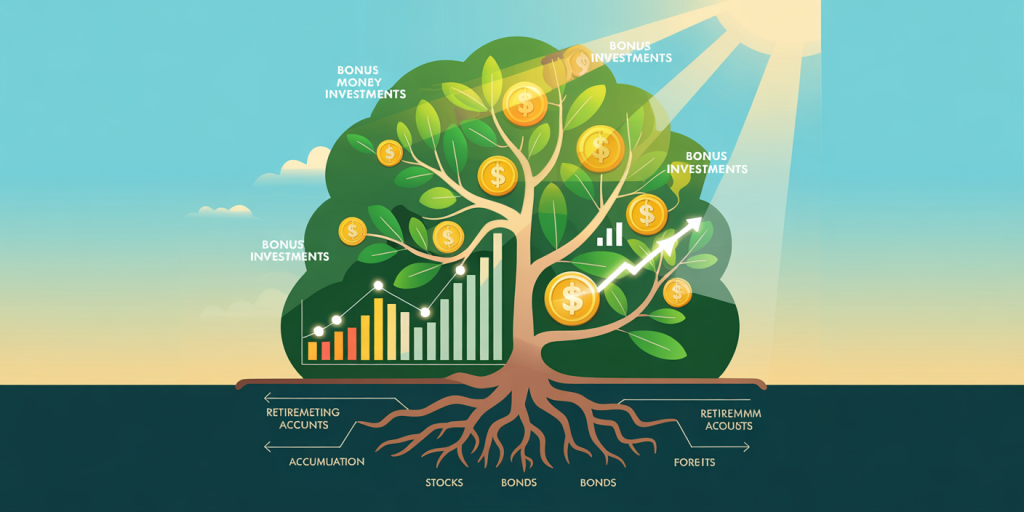How to Use Your Year-End Bonus (13th Salary) Wisely and Strategically
The year-end bonus, often referred to as the 13th salary, is a financial gift many employees receive as a reward for their hard work throughout the calendar year. While it might be tempting to splurge on gifts, vacations, or spontaneous purchases, using this extra income wisely can profoundly impact your financial health and future stability. This article dives into practical strategies to manage your year-end bonus effectively, helping you make the most of this financial opportunity.
Understanding the Value of Your Year-End Bonus
Before deciding how to allocate your year-end bonus, it is crucial to grasp its significance beyond mere spending money. According to a 2023 survey by the Bureau of Labor Statistics, approximately 75% of American workers receive a year-end bonus, with the average amount ranging from 5% to 10% of their annual salary. In some countries, this is a mandatory component of pay, while in others, it is discretionary and tied to company or individual performance.
Many recipients view this bonus as “extra” income, leading to impulsive decisions that offer only short-term satisfaction. However, statistics from the National Endowment for Financial Education report that individuals who allocate their bonuses toward savings, investments, or debt reduction experience a 40% higher improvement in financial stability over a five-year span. Understanding your bonus’s monetary and psychological impact will help you make informed decisions.
Assess Your Financial Position First
Before splurging on any impulse purchases or gifts, evaluate your current financial health. Tackling debt, building an emergency fund, or setting aside money for retirement provides lasting benefits. For example, clearing high-interest debts such as credit card balances can save a substantial amount of money. If you owe $5,000 on a credit card with a 20% interest rate and use your $2,000 bonus to pay it down, you effectively reduce future interest payments by approximately $400 in just one year.

Another important step is assessing your liquidity needs. Financial advisors often recommend having an emergency fund that covers at least three to six months of essential expenses. If your bonus can contribute to that fund, you’ll gain peace of mind in case unforeseen events like car repairs, medical bills, or job loss occur.
| Financial Priority | Potential Impact | Example Use of Bonus |
|---|---|---|
| Debt payment | Reduce interest, improve credit score | Pay off $2,000 credit card debt |
| Emergency fund creation | Financial security in crises | Add $1,500 to savings account |
| Retirement savings | Long-term wealth building | Contribute $2,000 to 401(k)/IRA |
Invest for Long-Term Growth
Investing a portion of your year-end bonus can accelerate your wealth-building journey. Unlike regular income, bonuses are often perceived as “found money,” making this an ideal opportunity to plant seeds for future financial independence. Consider diversified options such as mutual funds, index funds, or even direct stocks. For example, if someone invests their $3,000 year-end bonus in an S&P 500 index fund with an average annual return of 7%, compounded over 20 years, that initial investment could grow to over $7,600.

Additionally, employer-sponsored retirement plans commonly offer matching contributions. Allocating part of your bonus to max out these programs not only increases your nest egg but also maximizes employer incentives. Take Jane’s case, who added $4,000 from her bonus to her 401(k) plan, unlocking an additional $1,000 from her employer. This smart move accelerated her retirement target by two years.
| Investment Type | Expected Average Annual Return | Risk Level | Example Outcome (20 Years) |
|---|---|---|---|
| S&P 500 Index Fund | 7% | Moderate | $3,000 grows to $7,600 |
| Corporate Bonds | 4% | Low to Moderate | $3,000 grows to $6,600 |
| High-yield Savings | 1% | Low | $3,000 grows to $3,700 |
Allocate Some Portion for Personal Development
Investing in yourself remains one of the most valuable uses of any windfall. Using your year-end bonus to enhance skills, certifications, or education can improve your earning potential and job security dramatically. According to a 2022 report from LinkedIn Learning, employees who upskill annually see an average salary increase of 6-10% compared to those who do not.
For instance, Mark, an IT professional, leveraged his $1,500 bonus to obtain a cloud certification. Within a year, he secured a promotion that boosted his salary by 12%. This kind of targeted investment not only boosts income but also cultivates confidence and professional satisfaction.
Moreover, educational courses, workshops, or entrepreneurial ventures can yield dividends for years. Platforms like Coursera, Udemy, or local community colleges offer affordable courses, making your bonus a practical tool for continuous growth.
Budget a Reasonable Amount for Enjoyment
While financial prudence is essential, completely denying yourself enjoyment can cause burnout and dissatisfaction. Setting aside a small portion of your year-end bonus for personal enjoyment or family activities prevents the feeling of deprivation. The key is moderation.
For example, allocating 10-20% of your bonus for gifts, dining experiences, or a short trip ensures you celebrate your hard work without sabotaging your financial goals. A common real-life strategy involves dividing the bonus into thirds—for savings, investment, and enjoyment—and sticking to that distribution.
The emotional value gained from spending responsibly on celebrations or relaxation should not be underestimated. Researchers from the University of Michigan found that splurging on experiential purchases increases happiness more than material ones. Hence, consider activities like a weekend getaway or family dinner rather than expensive gadgets.
Plan for Tax Implications and Smart Withdrawal
In many regions, the year-end bonus is subject to taxation. Being mindful of tax liabilities can prevent surprises and help you plan your net bonus allocation more effectively. For example, in the United States, bonuses are often taxed at a withholding rate of 22%, although the actual amount may vary upon filing returns. In contrast, some countries treat the 13th salary as regular income for tax purposes, potentially pushing taxpayers into higher brackets.
Understanding your net bonus after taxes helps create realistic budgeting plans. Consulting with a financial advisor or tax professional is advisable if your bonus is substantial. They can offer strategies such as investing in tax-advantaged accounts (e.g., IRAs, Health Savings Accounts) to reduce overall tax burdens.
Furthermore, breaking down your bonus into tranches, or spreading withdrawals across several periods, particularly from investment earnings or retirement withdrawals, can minimize taxation and maintain steady cash flows.
Future Perspectives: Leveraging Your Bonuses for Financial Growth
Looking ahead, leveraging your year-end bonuses strategically can compound to significant wealth over time. Building a habit of allocating your bonuses effectively enables you to use these windfalls as launchpads toward future financial goals, such as home ownership, education funds for children, or early retirement.
Establishing a consistent plan to divide bonuses between debt reduction, investment, personal development, and reasonable enjoyment creates balance and sustainability. Digital financial tools and budgeting apps increasingly enable individuals to track these allocations meticulously, enhancing accountability and awareness.

Moreover, as the global economy evolves, the purchasing power and frequency of bonuses might shift due to inflationary pressures or changing labor policies. Staying informed about economic trends will help you recalibrate your strategies. For instance, during inflationary times, investing in assets such as real estate or commodities might offer better protection of your capital compared to cash holdings.
In summary, with the right mindset and allocation strategy, your year-end bonus can be much more than a temporary uplift—it can become a cornerstone of your financial stability and future success.
